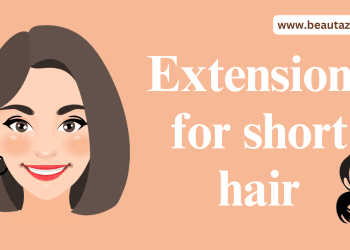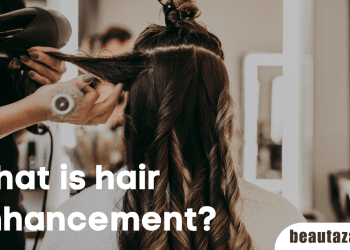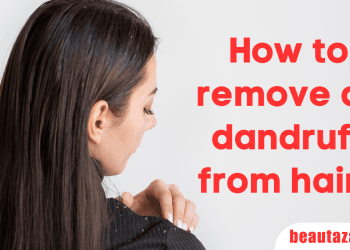Hair loss is a frequent issue that both men and women experience. Is it true that many individuals think cutting their hair short would stop hair loss? We’ll discuss “Does cutting hair short reduce hair fall” in this blog article. We will also go through the different types of hair loss, the distinctions between short and long hair, and advice on how to stop hair loss. This blog article offers all the information you need about cutting hair short and minimizing hair fall, whether contemplating a new haircut or just searching for strategies to maintain your hair healthily.
Understanding Hair Fall
What hair fall is and the causes of hair fall
Hair loss, commonly known as alopecia, causes hair to fall out from the scalp and other body parts. Genetics, hormonal changes, diseases, medicines, stress, and lifestyle may cause hair loss.
Genetics strongly affect hair loss. Pregnancy, menopause, and thyroid disorders may also cause hair loss. Alopecia areata and scalp infections may also cause hair loss. Medications like chemotherapy may cause hair loss.
Stress also causes hair loss. Cortisol, a stress hormone, may interrupt hair development cycles and cause increased hair loss. Lifestyle variables, including food, sleep, and pollution, may also trigger hair loss.
The different types of hair fall and how they occur
Many factors induce hair loss. These are:
- Most hair loss is from androgenetic alopecia. Aging decreases hair follicles, causing thinner, shorter hair. Hormones and genetics trigger hair loss.
- Telogen Effluvium occurs when numerous hair follicles relax. Drugs, hormones, stress, and disease may cause this. Telogen effluvium breaks and loses hair.
- Alopecia Areata causes patchy hair loss. Immune errors induce hair loss. Environmental or stress-related hair loss may occur at any age.
- Tugging hair damages follicles, causing traction alopecia. Avoid braids, weaves, and ponytails.
- Radiation and chemotherapy kill hair follicles, producing anagen effluvium. Anagen effluvium weakens and sheds hair.
The importance of hair growth cycles in understanding hair fall
Understanding hair growth cycles makes hair loss natural. Anagen, catagen, and telogen are hair development phases.
- Hair develops during anagen. This 2–6-year period affects hair length. After this phase, the hair follicle enters catagen for 1–2 weeks—contracting the hair follicles’ slow development.
- Hair follicles begin the three-month telogen phase: inactive hair follicles and strands. Anagen follows telogen.
- Telogen follicles shed hair. 50–100 strands come out daily, and 10% of hair is in telogen. Medical issues or hair cycle disruptions may cause significant hair loss.
Short Hair vs. Long Hair
The relationship between hair length and hair fall
Given the variety of variables that might influence hair fall independent of hair length, the link between hair length and hair fall is complex. Hair length may affect hair fall in a few different ways, though:
- Hair breakage: Because the hair strands are older and have seen more significant wear and strain, longer hair is likelier to break. If the hair is fashioned in tight or damaging hairstyles, this may result in hair loss.
- Weight: Because longer hair might be heavier, the hair follicles may be under more significant stress, which can result in hair loss.
- Care: Maintaining longer hair requires extra care, such as regular brushing and cleaning. Hair may get damaged and lost if it is not adequately cared for.
- Age: Regardless of hair length, as people age, their hair may naturally grow thinner and more prone to falling out.
The factors that contribute to hair fall in long hair
Long hair loses more for several reasons:
- Ponytails, braids, and other hairstyles may stress follicles. Tightly wearing these styles may damage hair follicles and cause hair loss.
- Chemical procedures: Dyeing, perming, and straightening may damage hair, making it brittle and prone to shedding. Long hair treated frequently is an exception.
- Heat styling may damage hair and cause hair loss.
- Pollution, wind, and sun destroy hair. Long hair is more sensitive to environmental damage and clothing scratches.
- Malnutrition may cause hair loss. Long hair needs more iron, zinc, and biotin. Thus deficits may be harmful.
- Pregnancy and menopause may cause long-term hair loss.
How hair length affects hair fall in short hair
Long and short hair fall differently. Other factors may still impact short hair:
- Short hair exposes the scalp. Therefore healthy scalps reduce hair loss. Dandruff, psoriasis, and seborrheic dermatitis cause hair loss.
- Short hair gels, waxes, and pomades may clog hair follicles. Hair loss may worsen.
- Hair loss may be inherited.
- Adolescence, physical factors, and hormonal changes may trigger temporary hair loss.
- Nutritional inadequacies: Like long hair, nutritional shortages may damage and cause temporary hair loss.
The benefits and drawbacks
Even if it has advantages and disadvantages, cutting hair short might be a feasible strategy for minimizing hair loss.
Benefits of cutting hair short to reduce hair fall:
- Short hair is lighter than long hair, which may be less stressful on the hair follicles and lessen hair loss.
- Less upkeep: Short hair takes less care, such as brushing or washing, which might aid in preventing hair loss brought on by excessive style or washing.
- Less exposure to damage: Short hair is more resistant to environmental influences, including wind and sun exposure and heat styling.
Cons of cutting hair short to reduce hair fall:
- Limited style choices: Short hair could have fewer styling alternatives than longer hair, which might worry some people.
- Less protection from external factors: Short hair may need additional care to prevent sunburn or other damage, and it gives less protection to the scalp.
- Hair breakage: Too frequent or short hair cuts may damage and break the hair, resulting in hair loss.
- Limited effect on certain forms of hair loss: Hair loss brought on by nutritional deficiency or hormonal changes may not be much affected by cutting hair short.
Hair Care Tips to Reduce Hair Fall
If you lose hair, try different hair care tips. Some ideas:
- Hot water and harsh shampoos may rob your hair of its natural oils. Hand-massaging your scalp increases blood flow. Rinse hair completely.
- Conditioner moisturizes and reduces damage. Apply it to your hair’s ends before washing.
- Tight braids and ponytails may cause hair loss. Alternately, let your hair down.
- Untangle your hair safely using a wide-tooth comb. Start at the ends.
- Eat well: Vitamin and mineral deficiencies may cause hair loss. Iron, zinc, and biotin-rich foods help hair.
- Avoid blow dryers, curling irons, and straighteners: They may damage your hair and cause hair loss. Use a heat protectant spray and lower the temperature if necessary.
- Sun damage may be brittle hair. Wear a helmet or SPF leave-in conditioner outside.
- Reduce stress: Exercise, meditation, and counseling may reduce stress, which can trigger hair loss.
Conclusion
Genetics, environment, and hair care behaviors may cause hair loss, which is annoying. Shortening hair may minimize hair loss. Before making significant hair changes, one must examine their hair type, lifestyle, and preferences. Instead, gentle shampoos, loose hairstyles, and hair protection will reduce hair loss and promote healthy growth. If hair loss persists or worsens, consult a doctor to find the cause and cure it. Proper hair care helps keep it healthy and gorgeous.
Read –






